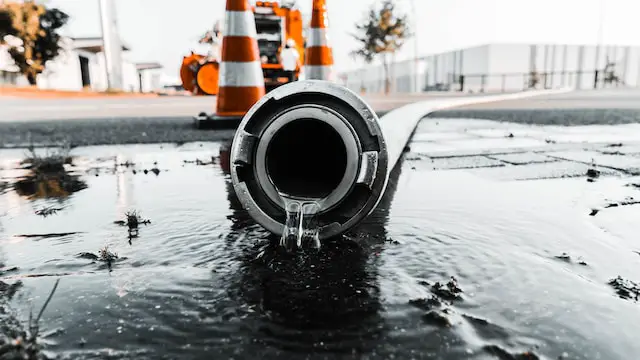Water leaks can cause a lot of damage over time, especially if they’re happening slowly. Detecting a slow water leak can save you time and money in the long run, but it can be challenging to identify them. Here are some tips on how to detect a slow water leak.

First, check your water meter. Turn off all the water sources in your home and take note of the reading on the meter. Wait for about 30 minutes or an hour, and then check the meter again. If the meter reading has changed, it means you have a leak somewhere in your house.
Another sign to look out for is a sudden increase in your water bill without any significant change in your water usage. Keep track of your water bills over time and compare them to previous months to detect any significant changes.
A drop in water pressure can also indicate a slow water leak. A leak in your plumbing system can cause a drop in water pressure, which can affect your daily activities such as showering or doing laundry.
Water stains are an obvious sign of a slow water leak. Look for stains on your ceiling, walls, or floors, especially in areas where water pipes run. Water stains can be brown, yellow, or even green and may also have a musty smell.
Even if you can’t see any visible signs of water leaks, you can still listen for dripping sounds. A slow water leak may not produce a constant drip, but you may hear occasional dripping sounds, especially at night when everything is quiet.
Toilets can be a common source of slow water leaks. A leaking toilet can waste a lot of water over time, and it’s easy to overlook this type of leak. Check your toilets for any signs of water around the base or any leaks around the tank.
Water leaks can cause your flooring to warp or buckle over time. Check your floors for any signs of damage, especially around areas where water pipes run.
Appliances that use water, such as dishwashers, washing machines, and refrigerators, can also be a source of slow water leaks. Check around these appliances for any signs of water leaks, such as water stains, musty odors, or warped flooring.
Slow water leaks can create an ideal environment for mold and mildew to grow. Look for any signs of mold or mildew in your home, especially in areas where water pipes run or where you have noticed water stains.
In conclusion, detecting a slow water leak can save you a lot of money and time in the long run. It’s essential to look out for changes in your water meter, water bill, water pressure, water stains, dripping sounds, toilets, appliances, and signs of mildew or mold. If you suspect that you have a slow water leak, it’s best to call a professional plumber to help you detect and fix the leak. Taking proactive steps to detect and fix slow water leaks can prevent costly damage to your home and belongings.
